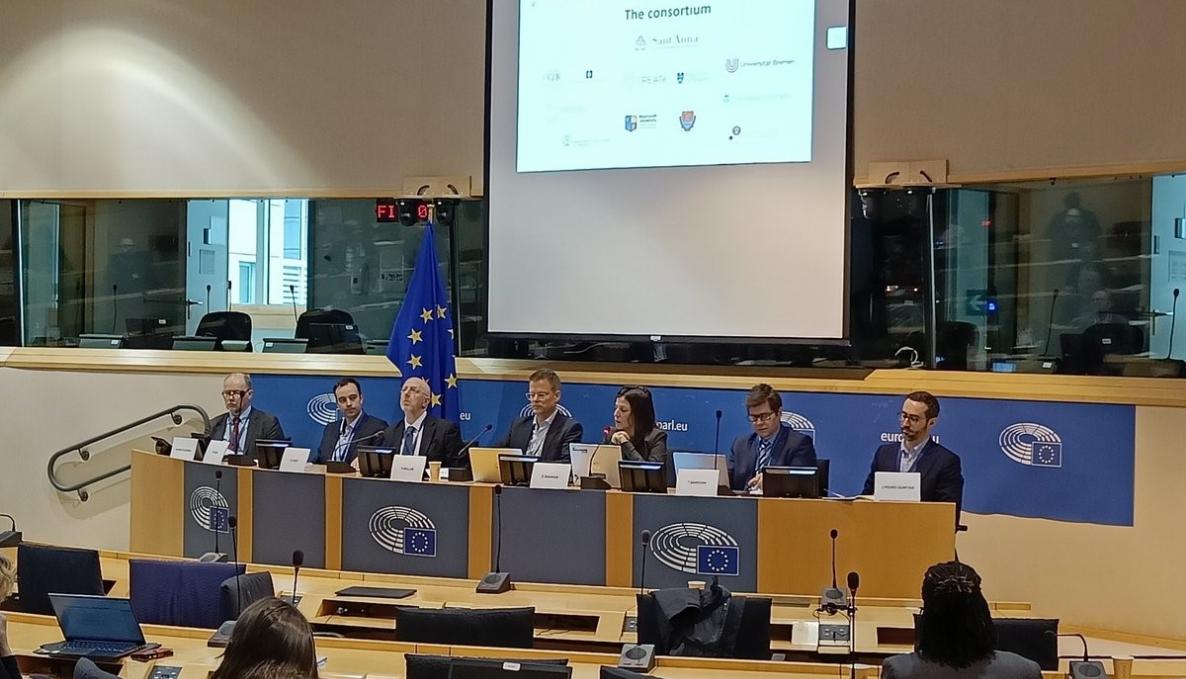Digital copyright law and role of Internet and AI, the project reCreating has been selected by the European Commission as 'success story'

The European Commission has selected the Horizon 2020 project reCreating Europe (Rethinking Digital Copyright Law for a Culturally Diverse, Accessible, Creative Europe, 2020-2023), coordinated by Caterina Sganga, associate professor at Dirpolis Institute, Sant'Anna School, as the "success story" to be publicised on the web channels of the Directorate General for Research and Innovation (the story is scheduled to be published at the end of September). The 'success story' status is awarded to a small and select number of EU-funded projects that have distinguished themselves for the importance, quality, innovativeness and social impact of their results.
This is an extremely important recognition for the intense work conducted over the last three years by Caterina Sganga and her team, who coordinated a consortium of some of the most important research centres in the fields of intellectual property, internet law and artificial intelligence law, producing over seventy reports and datasets on key issues such as, among others the protection of users and the vulnerable in the use of copyrighted works, the evolution of online piracy, the recognition of rights on works generated by artificial intelligence agents, the challenges faced by the European creative and cultural industries, the digitisation of cultural heritage and its availability to the public, the liability of digital platforms and the dangers of automatic filtering of user-posted content.
The final results of the project
The results of reCreating Europe were successfully presented during the project's two-day final conference, held in Brussels on 20-21 March 2023 in front of more than 150 scholars, stakeholders, members of the European institutions and some national parliaments. The conference culminated in a panel discussion hosted by the European Parliament, during which the legislative reform proposals elaborated by reCreating Europe - and available here - were discussed by Marco Giorello (Head of the Copyright Unit of the European Commission's CONNECT Directorate General), Brando Benifei (PD group leader in the European Parliament and rapporteur of the AI Act) and Axel Voss (EPP MEP, rapporteur of the recent Copyright Directive). Videos of the two-day event are available on YouTube here (Day 1 - Museum of Natural Sciences) and here (Day 2 - European Parliament).
"We are honoured by the recognition that the European Commission wished to confer on the work carried out by Prof. Caterina Sganga's research group," comments Gaetana Morgante, Director of the Dirpolis Institute. "This is a confirmation of the goodness and success of the strategies adopted by the School in its policies for recruiting and enhancing the excellence of human resources, in the direction of internationalisation, interdisciplinarity and the promotion of applied research with a high social impact.
The commitment of the Sant'Anna research group is developing on several fronts. A study commissioned by the European Commission's Directorate-General for Research and Innovation on reforms to data and copyright legislation to enable the development of Open Science is underway. In parallel, two other recently funded projects - the Horizon Europe 'OpenMusE' (An Open, Scalable, Data-to-Policy Pipeline for the European Music Ecosystem) and 'REBOOT' (Reviving, Boosting, Optimising and Transforming European Film Competitiveness) - will allow the team to study the impact of digitisation, of new business models and artificial intelligence algorithms of platforms on cultural diversity in the European music industry, and the strengths and weaknesses of the current legislation with respect to the objectives of boosting the competitiveness and cultural diversity of the European film industry, in order to provide essential data and empirical evidence for future legislative reform interventions.



